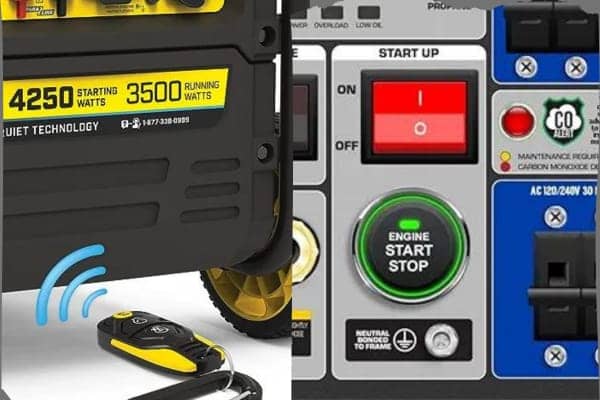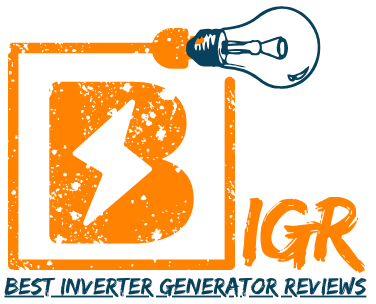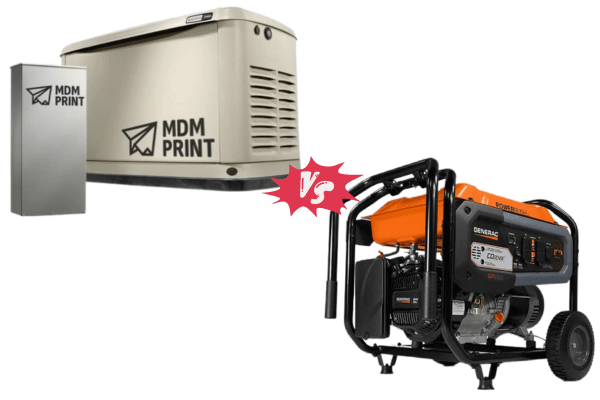
Generators are indispensable tools that provide power during emergencies or in remote locations where electricity is not readily available. When choosing a generator, one of the critical decisions you’ll face is whether to opt for an electric start generator or a remote start generator. Both options have their advantages and disadvantages, making the decision a matter of personal preference and specific needs. In this comprehensive guide, we will delve deep into the differences between electric start and remote start generators to help you make an informed decision.
Electric Start vs. Remote Start Generators
Electric Start Generators
Electric start generators, also known as push-button start generators, are a popular choice for many users. They come equipped with a battery-powered starter motor that eliminates the need for manual cranking, making them easy to start. Here are some key features and benefits and disadvantages of electric start generators:
Advantages of Electric Start Generators:
Electric start generators offer several advantages and disadvantages that can help users determine if this option aligns with their needs. Let’s check their pros and cons:
- Convenience: The primary advantage of electric start generators is their convenience. They feature a push-button or key-start mechanism, making it much easier to start the generator compared to manual pull-start models. This is particularly beneficial for individuals who may not have the physical strength or dexterity required for manual starting.
- Reliability: Electric start generators tend to be more reliable in starting on the first attempt. There’s no need to repeatedly pull a cord, which can be frustrating and hard on the generator’s engine over time. This reliability is especially crucial in emergency situations when power is needed quickly.
- Remote Start Capabilities: Many electric start generators come with remote start options, allowing you to start the generator from a distance using a remote control or smartphone app. This feature is extremely convenient during inclement weather or when you want to start the generator from inside your home.
- Safety: Electric start generators reduce the risk of accidents associated with pull-start models. Pulling the starter cord vigorously can sometimes lead to slips or injuries. Electric start eliminates this concern.
- Multiple Features: Electric start generators often come with additional features like digital displays, fuel gauges, and automatic shutdown mechanisms for low oil or overloading. These features enhance user-friendliness and safety.
Disadvantages of Electric Start Generators:
- Cost: Electric start generators are generally more expensive than their manual counterparts. The added components like the starter motor, battery, and wiring contribute to the higher price tag. If you have tough budget, this can be a drawback.
- Maintenance: Electric start generators require regular maintenance of the battery and starter motor. Over time, the battery may degrade and need replacement, adding to maintenance costs. Manual start generators have fewer components and can be simpler to maintain.
- Weight and Size: Electric start generators tend to be heavier and bulkier due to the added components. This can make them less portable and more challenging to transport compared to smaller, manual start models.
- Dependence on Battery: Electric start generators rely on a battery to function. If the battery is dead or malfunctions, you won’t be able to start the generator. This can be a problem in situations where the generator is needed urgently, and the battery is not charged.
- Complexity: The electric start system adds complexity to the generator, which may result in a higher likelihood of technical issues. Repairing or troubleshooting these issues might require specialized knowledge or professional assistance.
Remote Start Generators
Remote start generators are another excellent option for those seeking the utmost convenience. They allow you to start and stop the generator from a distance using a remote control or smartphone app. Here are the advantages and disadvantages of remote start generators:
Advantages of Remote Start Generators:
- Convenience: The primary advantage of remote start generators is the convenience they offer. With a simple push of a button on a remote control or smartphone app, you can start or stop the generator from a distance. This is particularly valuable during inclement weather or in emergency situations.
- Enhanced Safety: Remote start generators provide an extra layer of safety. You can start the generator without having to go outside, minimizing exposure to harsh weather conditions or potential hazards. This is especially beneficial during storms or in the dark.
- Effortless Operation: Remote start generators are incredibly easy to use. The intuitive interface of remote controls and apps simplifies the generator’s operation, making it accessible to a wide range of users, including those with limited physical capabilities.
- Monitoring and Control: Many remote start generator systems offer monitoring and control features. You can check the generator’s status, fuel levels, and power output remotely, ensuring that it operates optimally. Some models even provide alerts for low oil or overloading, helping prevent damage.
- Time-Saving: The ability to start or stop the generator remotely saves time, especially when you need power urgently. You won’t have to go outside, manually start the generator, or wait for it to warm up. This quick response can be crucial during power outages.
Disadvantages of Remote Start Generators:
- Cost: Remote start generators tend to be more expensive than traditional manual start models. The additional components like remote controls, receivers, and communication technology contribute to the higher price.
- Complexity: Remote start generators are more complex due to their electronic components and communication systems. This complexity can lead to technical issues that may require professional maintenance or troubleshooting.
- Dependence on Electronics: Since remote start generators rely on electronic systems, they are susceptible to electronic failures or interference. In some cases, remote control signals may not reach the generator, hindering its operation.
- Battery Maintenance: Many remote start generators use a battery to power the electronic start system. These batteries require regular maintenance and replacement over time, adding to the overall cost of ownership.
- Security Concerns: There are potential security concerns with remote start generators. Unauthorized access to the remote control or app could lead to the generator being started or stopped without your consent. Ensuring proper security measures is essential to mitigate this risk.
Which One is the Best?
Choosing between an electric start generator and a remote start generator depends on your preferences and requirements. Here are some factors to consider:
- Convenience: If convenience is your top priority, a remote start generator may be the better choice. It offers the ultimate ease of use, especially in adverse conditions.
- Budget: Electric start generators tend to be more affordable than remote start models, making them an attractive option if you’re on a tight budget.
- Advanced Features: If you need advanced features like programmable timers, remote monitoring, or load shedding, a remote start generator is likely the better fit.
- Ease of Maintenance: Electric start generators are generally easier to maintain due to their simplicity. If you prefer a low-maintenance option, they might be your best bet.
- Safety: If safety is a significant concern, the remote start generator’s ability to stop the generator from a distance can be a decisive advantage.
Cost Comparison: Electric Start vs. Remote Start Generators:
Comparing the costs of electric start and remote start generators involves considering various factors, including the initial purchase price and long-term maintenance costs. Let’s break down these cost factors for each type of generator:
Electric Start Generators:
- Initial Purchase Price: Electric start generators typically have a higher initial purchase price compared to manual start generators. This higher cost is due to the added components required for the electric start system, such as the starter motor, battery, and wiring. Prices can vary significantly based on the generator’s size, brand, and features, but you can expect to pay several hundred dollars more for an electric start model compared to a similar manual start generator.
- Battery Replacement: Electric start generators rely on a battery to function. Over time, batteries can degrade and need replacement, which can be an additional cost. Battery lifespan varies, but you might need to replace it every 2 to 5 years, depending on usage and maintenance.
- Maintenance Costs: Electric start generators may have slightly higher maintenance costs due to the added components. Regular maintenance includes battery checks and replacements, starter motor maintenance, and occasional wiring inspections. Maintenance costs are relatively modest and depend on how often you use the generator and how well you maintain it.
- Fuel Costs: Fuel costs are generally the same for both electric start and manual start generators of the same size and type. However, if the electric start generator has additional features like automatic load sensing or power management, it could be more fuel-efficient, potentially saving you money in the long run.
Remote Start Generators:
- Initial Purchase Price: Remote start generators are typically more expensive than electric start generators due to the added cost of remote control technology and communication systems. You can expect to pay a premium of several hundred dollars for this feature compared to an electric start generator of the same capacity.
- Remote Control Battery: If your remote control for the generator is battery-powered, you’ll need to factor in occasional battery replacement costs. However, these costs are usually minimal and infrequent.
- Maintenance Costs: Maintenance costs for remote start generators are similar to those of electric start generators. Regular maintenance includes checking the battery (if applicable), ensuring the remote control system is functioning correctly, and maintaining the generator’s engine and other components.
- Communication System Maintenance: Remote start generators have communication systems that enable remote control. While these systems are generally reliable, there might be occasional maintenance or repair costs associated with them if they encounter technical issues.
In summary, electric start generators have a lower initial purchase price compared to remote start generators, making them a more budget-friendly option. However, remote start generators offer greater convenience and control, albeit at a higher cost. Maintenance costs for both types are relatively similar, with occasional expenses related to batteries and system components.
Ultimately, your choice between electric start and remote start generators should consider your budget, the level of convenience and control you desire, and whether the added features justify the higher upfront cost.
Final Thoughts
The choice between an electric start and a remote start generator ultimately comes down to your specific needs and preferences. Both options offer significant advantages in terms of convenience and ease of use, so consider your budget, desired features, and maintenance requirements before making your decision. Whichever you choose, a generator can be a valuable investment for ensuring power continuity in your home or when you’re off the grid.




